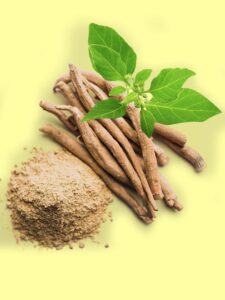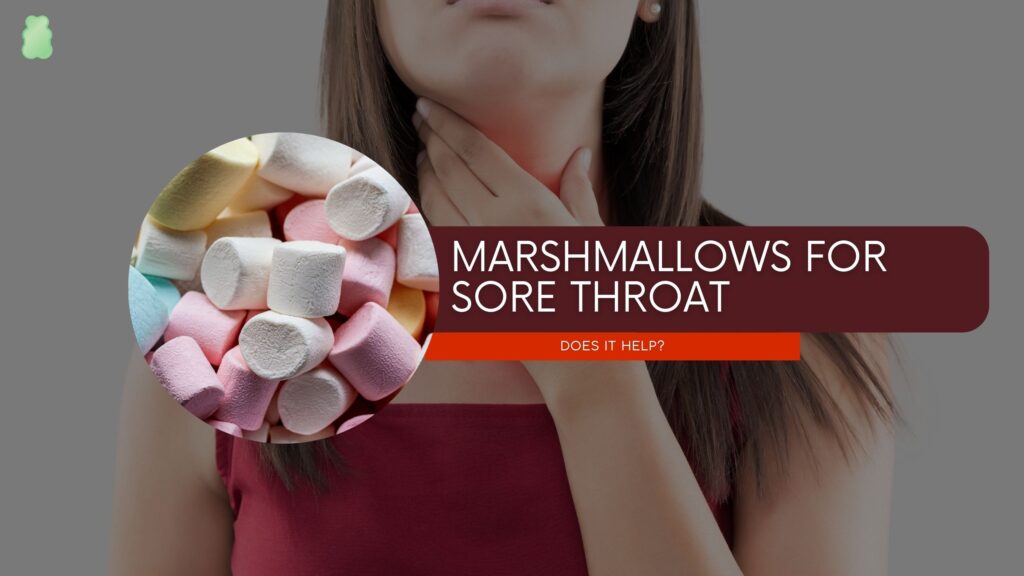Table of Contents
ToggleAre you tired of struggling with the uncomfortable and often embarrassing symptoms that accompany hot flashes? I know how it feels – when they strike, all you want to do is hide! Thankfully, there are natural solutions available so you don’t have to suffer in silence.
Enter Ashwagandha. For centuries this powerful herb has been used in Ayurvedic medicine to help combat stress and anxiety- two factors that can contribute to hot flash severity. In this article, we’ll take a closer look at how ashwagandha works alongside lifestyle changes to relieve your hot flash symptoms, from flushing and sweating to heart palpitations. We’ll dive into why ashwagandha may be especially effective for perimenopausal women dealing with severe hormone fluctuations and discuss its potential side effects too. Whether you’re looking for relief now or just curious about what natural remedies might work best for your needs in the future, by the end of this article you’ll be armed with an understanding of ashwagandha’s impact on hot flashes – plus some advice on incorporating it into your life. Let’s get started!
Understanding Hot Flashes and Their Symptoms

Hot flashes are like unexpected visitors who show up uninvited and disrupt the flow of your day. They can be overwhelming, making you feel like you’re trapped in a sauna with no escape route. But fear not, for there are natural remedies that can come to your rescue.
One effective remedy is incorporating phytoestrogens into your diet. These plant-based compounds mimic the effects of estrogen in the body and help balance hormonal fluctuations. Foods rich in phytoestrogens include soybeans, flaxseeds, and chickpeas. So why not whip up a mouthwatering hummus with some flaxseed crackers? Not only will it satisfy your cravings but also provide relief from those pesky hot flashes.
Another natural remedy worth considering is acupuncture. This ancient practice involves inserting thin needles into specific points of the body to stimulate energy flow and restore balance. It may sound intimidating at first, but many women swear by its effectiveness in reducing hot flashes. So why not give it a try? Just imagine lying comfortably on a massage table while an expert gently taps away those unwanted heat waves.
In conclusion, don’t let hot flashes steal the joy out of life! Embrace these natural remedies as allies in your battle against menopausal discomforts. From adding phytoestrogen-rich delights to indulging in acupuncture sessions, there’s a solution waiting just around the corner – one that will leave you feeling cool as a cucumber once again.
We have covered an extensive guide on Ashwagandha which includes ashwagandha and perimenopause. Further to better understand the herb and its various uses, we have covered topics like ashwagandha and birth control which you might be interested in.
Also, check out our recent posts: ashwagandha and eczema
Introducing Ashwagandha: A Powerful Herb for Stress and Anxiety

Ashwagandha, oh what a wondrous herb! Used since ancient times in Ayurvedic medicine, it has now found its way into the modern world and gained quite a popularity. And why, you may ask? Well, my dear friend, because Ashwagandha is a stress-busting superhero!
Imagine this: you’re going about your day feeling overwhelmed by life’s many demands. Your heart races and your mind feels scattered like puzzle pieces on a table. But fear not! Ashwagandha comes to the rescue. It swoops in and gently calms those racing thoughts and soothes that anxious heart. With its natural adaptogenic powers, ashwagandha helps regulate cortisol levels (ah yes, that pesky stress hormone), giving you more zen-like vibes.
But that’s not all! Let us turn our attention to menopause- a time of change for women that often brings along hot flashes with it. Now picture this: you’re sitting there minding your own business when suddenly *poof* – a heatwave hits! Ahh, the dreaded hot flash strikes again! But fret not my fine lady friends; Ashwagandha might just be able to lend a helping hand here too.
You see darling, by reducing overall stress levels in the body (thank you again for that one, mighty ashwagandha!), this incredible herb could potentially lessen the severity of those fiery flashes experienced during menopause. Isn’t nature fascinating? A little sprinkle of ashwagandha here and there may just bring some much-needed relief to those undergoing this transformative phase in life.
So there you have it folks- an ancient herb making waves in our modern world. Ashwagandha truly is a magical botanical gem with potential benefits that go beyond countenance – from combating stress to potentially taming those unruly hot flashes during menopause. Embrace the power of nature, my friends, and let ashwagandha be your guide on this journey to a calmer, cooler existence.
You Might Like: https://realgoodgummies.com/how-to-cycle-ashwagandha
The Connection Between Hormone Fluctuations and Hot Flash Severity
Perimenopause, ah the joys of womanhood. As if dealing with monthly periods and mood swings wasn’t enough, now we have to contend with hormone fluctuations on a whole new level. It’s like our bodies are playing a cruel game of “let’s see how many hot flashes we can throw at her today.” Well, ladies, fear not because there may be a natural remedy that could help us through this tumultuous time.
Enter Ashwagandha, the superhero herb that promises to restore hormonal balance and bring some much-needed relief. This ancient Ayurvedic remedy has been used for centuries to tackle various health issues, but its potential impact on perimenopausal symptoms is what caught my attention. Imagine finally being able to bid farewell to those dreaded hot flashes that leave us drenched in sweat even in the dead of winter!
So how does Ashwagandha work its magic? Well, it’s believed that this wonder herb helps regulate cortisol levels and reduces stress-induced hormone imbalances. By calming down our overactive adrenal glands, it may help smooth out those rollercoaster-like hormone fluctuations that wreak havoc on our bodies day in and day out.
You Might Like: https://realgoodgummies.com/ashwagandha-and-maca-root
How Ashwagandha Works in Relieving Hot Flash Symptoms
Sharing my experience with ashwagandha as a treatment for hot flashes - the good and the bad
by u/0nlyhalfjewish in MenopauseMavens
Let’s talk about ashwagandha, a powerhouse herb that has been gaining popularity lately. One of the main reasons why people are turning to this wonder plant is because it contains active compounds called adaptogens. These little magical substances work harmoniously with our body’s natural processes to promote balance and reduce stress responses.
Imagine a world where you feel calm and collected despite the chaos that surrounds you – that’s what ashwagandha can offer. By calming the nervous system, this herb may even have a positive effect on those pesky hot flashes during menopause. You know, those moments when your body suddenly feels like it’s in an intense heatwave? Ashwagandha might just be the answer!
- It gently works in sync with your body
- No need for drastic measures or harsh chemicals
- Ashwagandha embraces your inner coolness
- Say goodbye to feeling flustered and hello to serenity
This natural marvel has been used for centuries in Ayurvedic medicine, originating from India. Its ability to regulate body temperature during hot flashes is just one of its many talents. So why not give it a try? With ashwagandha by your side, you can face life’s challenges head-on while maintaining a sense of tranquility that would make even Buddha jealous.
You Might Like: https://realgoodgummies.com/ashwagandha-withdrawal-things-you-must-know
Incorporating Ashwagandha Into Your Daily Routine
When it comes to ashwagandha, the possibilities are endless! You can find this amazing herb in all sorts of forms – capsules, powders, teas, or tinctures. It’s like a buffet of options tailored to fit your unique preferences and lifestyle. So whether you’re a pill popper or a tea aficionado, there’s an ashwagandha method just for you.
But before you dive headfirst into this botanical wonderland, it’s crucial to consult with a healthcare professional. They will guide you on how to incorporate ashwagandha into your supplement regimen safely and effectively. After all, they have the knowledge and expertise to ensure that any new addition to your wellness routine is beneficial rather than harmful.
By consulting with a healthcare professional beforehand, not only will you gain valuable insights about dosage and potential interactions with other medications or conditions but also peace of mind knowing that you’re making informed choices about your health. They might even recommend specific brands or formulations based on their experience and research.
In conclusion, while the world of ashwagandha may seem vast and exciting with its array of options like capsules or powders; it’s essential not to jump in blindly. Take the time to consult with professionals who can provide guidance on incorporating this herb into your daily routine safely. Your body deserves nothing less than expert care as you embark on this journey towards holistic wellness!
You Might Like: https://realgoodgummies.com/ashwagandha-gummies-for-sex
Potential Side Effects of Using Ashwagandha
Ashwagandha, a fascinating herb that has gained quite a bit of popularity in recent years. It is widely regarded as safe for consumption, but like anything else, it may have its downsides. While rare, some individuals may experience mild side effects such as an upset stomach or drowsiness when taking ashwagandha.
It’s crucial to be mindful of the recommended dosages and not exceed them. Just because you think more is better doesn’t mean it actually is! Some people may mistakenly believe that taking larger doses will yield better results, but this isn’t necessarily true and could increase the likelihood of experiencing those pesky side effects.
If you find yourself feeling queasy or excessively tired after starting an ashwagandha regimen, don’t hesitate to discontinue use and consult with a healthcare professional. They can provide guidance on whether these symptoms are related to ashwagandha or if there might be other underlying causes at play. The key here is listening to your body and acknowledging any adverse reactions that arise.
In conclusion, while ashwagandha generally tends to be safe for most individuals, it’s important to remember that everyone’s body reacts differently. Stick to the suggested dosage guidelines and keep an eye out for any signs of discomfort or drowsiness. As always, consult with a medical expert if you have any concerns or questions about your specific situation. Your health should always come first!
Other Natural Remedies for Hot Flashes
The first natural remedy worth exploring is black cohosh. This herb, native to North America, has been used for centuries to treat menopausal symptoms. It contains compounds that mimic estrogen in the body, helping to balance hormonal levels and reduce hot flashes. Black cohosh can be consumed as a supplement or brewed into tea.
Another option is evening primrose oil. Derived from the seeds of the evening primrose plant, this oil is rich in gamma-linolenic acid (GLA), an omega-6 fatty acid that may help regulate hormone production and alleviate hot flashes. Many women find relief by taking evening primrose oil capsules on a daily basis.
In addition to these herbal remedies, making lifestyle changes can also make a significant difference. Maintaining a healthy diet full of fruits, vegetables, whole grains, and lean proteins can support overall well-being and minimize hot flashes episodes.
- Regular exercise is another key factor in managing hot flashes.
- Aim for at least 30 minutes of moderate-intensity activity most days of the week
- such as brisk walking,
- cycling,
- dancing,
- swimming.
By incorporating these natural remedies into your routine and adopting healthier habits,
you may experience reduced frequency and intensity of those pesky hot flashes!
FAQ
1: What is Ashwagandha and how can it help alleviate hot flashes?
Ashwagandha is a traditional herb used in Ayurvedic medicine, known for its adaptogenic properties. It can help regulate hormone levels, reducing the frequency and intensity of hot flashes experienced during menopause.
Q2: Are there any scientific studies supporting the effectiveness of Ashwagandha for managing hot flashes?
Yes, several studies have shown that consuming Ashwagandha regularly can significantly reduce the occurrence and severity of hot flashes in menopausal women.
3: How should I consume Ashwagandha to relieve my hot flashes symptoms?
The most common way to consume Ashwagandha is in supplement form. Look for standardized extracts containing at least 5% withanolides, which are the active compounds responsible for their therapeutic effects.
4. Are there any potential side effects or precautions associated with using Ashwagandha for hot flashes?
Generally considered safe when taken as directed, some individuals may experience mild gastrointestinal upset or drowsiness initially. It’s advisable to consult with a healthcare professional before starting any new herbal supplement regimen, especially if you have underlying medical conditions or are taking medications.
5. Can I use Ashwagandha alongside other treatments for managing my hot flashes symptoms?
Yes, many women combine traditional hormone therapies with natural remedies like Ashwagandha to manage their menopausal symptoms effectively. However, it’s always important to consult your healthcare provider regarding any potential interactions or contraindications between different treatments you’re considering.
Dr. Susan Francis is a passionate medical professional with over 4.5 years of experience in the field. She received her medical degree from the University of Michigan and completed her residency at the Mayo Clinic.
In addition to her clinical work, Dr. Francis has a strong interest in medical writing and editing. She has edited numerous articles for medical journals and is a regular contributor to several healthcare publications.
Dr. Francis is committed to promoting accurate and accessible medical information to the public. In her free time, she enjoys staying up to date on the latest medical research and volunteering at local healthcare clinics.
- October 3, 2023
- October 3, 2023









